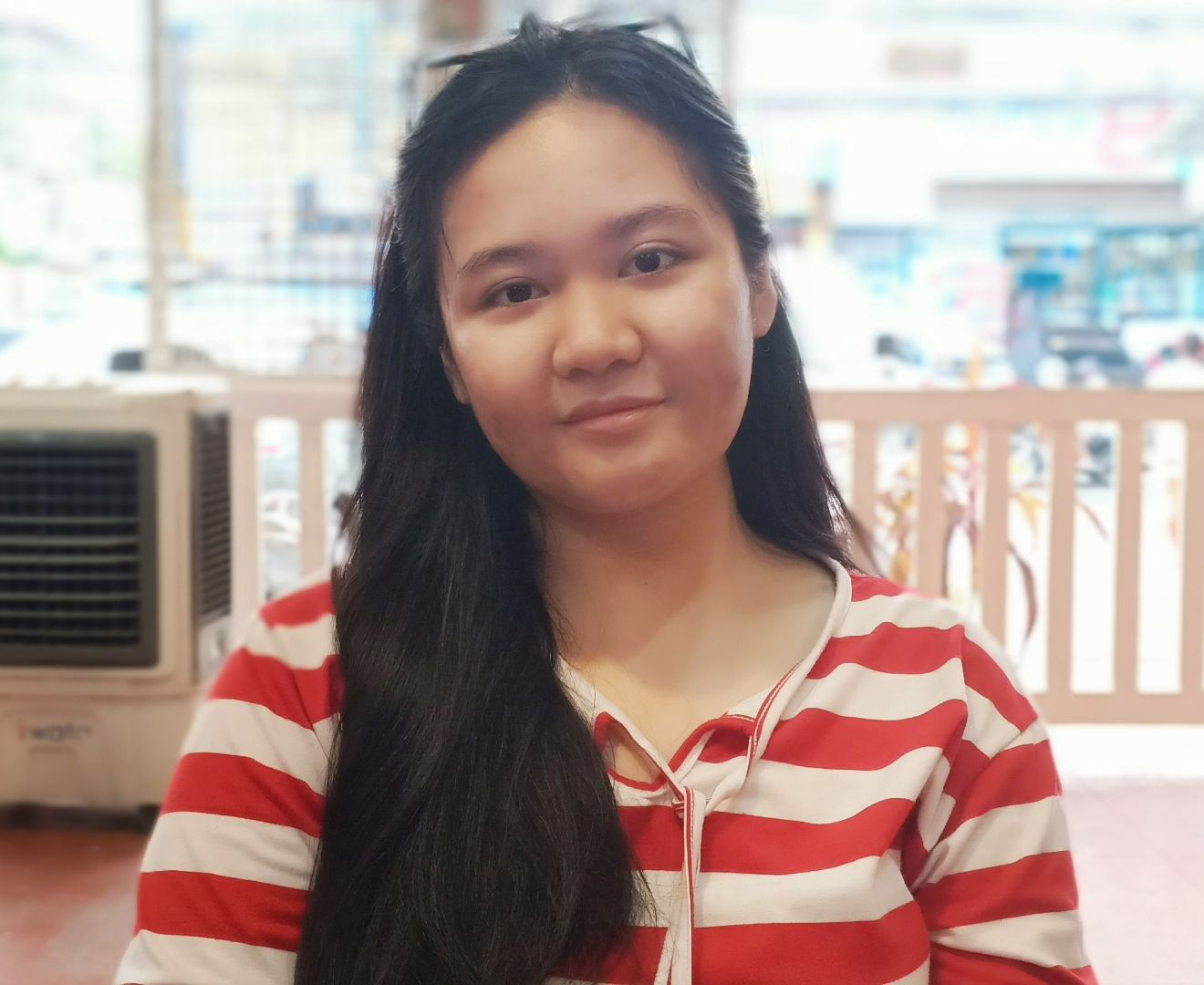This essay was written by Krizzy Hazel S. Abringe, age 16, from the Philippines in response to the 2021 Global Voices essay contest in Southeast Asia. Krizzy was awarded third place for this entry.

Silence. I have always liked silence. It has given me the luxury of being alone with my thoughts; it makes me feel at ease when everything seems overwhelming. I even value silence in deep conversations, allowing opinions and imagination time to develop. I also like to be in silence when I have learned the bliss of listening to my surroundings, solely dwelling in them. And my favorite? As my mom used to tell me, "When you are in a fight or an argument, be silent. Silence can break the cycle of anger, and everything will be all good." I agree with her and am fascinated by how silence can be the key to peace and order, so I took her words to heart. From then on, it taught me to be empathetic, and I have enjoyed being so.
However, silence can only do so much because some issues and conflicts require strong and outspoken standpoints from other people, including women. Over time, I came upon a silence much different from the silence I grew up with. Gone were my mother's wise words which were replaced by more insidious words, "A woman should always be silent." At first, I thought they were the same as my mother's words and listened to them, but it did make me feel uncomfortable, as if my body weighs a ton heavier than I can carry. Along with those words, gone was the empathetic joy. But, why? What was wrong with it?
As I am transitioning to young adulthood, I have realized that it was the emphasized word–woman–that made me feel uneasy. It took me time, research, and experience to finally comprehend it because I did not understand the correlation of my gender to my choice to be silent. It was later that I understood that maybe it's not a correlation but rather a construct. The mindset on silence securing peace has stemmed from cultural, religious, and gender-based honor and pride codes within families and communities. Likewise, I was raised in a devout environment with the firm belief in ending the cycle of anger by being understanding of one's circumstances and being silent rather than mirroring their temperament. In that way, silence gives the other person time to reflect on their actions and prevent hurtful outbursts, securing peace within the household. This was culturally taught to women, especially wives and daughters, to keep the family together.
But silence can only do so much. What if there are conflicts that being silent fails to resolve? What happens if we always choose to be silent? I knew the answer, and it saddens me to no end. Unresolved conflicts can escalate to domestic violence, and one of every four Filipina aged 15-49 has experienced it. Sadly, those numbers have only risen since the COVID lockdown began in March 2020. Still, women remained silent to save their relationship and keep family together. As someone with religious beliefs, it unsettled me. Who knew silence was also a key to domestic violence? I felt cornered and incredulous, making me ponder, "Was silence always this oppressing and not liberating?" Doubt plagued every thought; my beliefs wavered. But yet, I remained silent as they told me to do because I am a woman, and my silence could reduce further conflict and secure peace.
I almost believed it.
When I turned 16, I joined a new church and met a lot of women. They were part of an organization called Young Women that helps young women to build unity, serve others, fulfill the covenant responsibilities, and learn and live the doctrine. Something about the name tugged at my heartstrings, reminding me of my rigid roles and responsibilities of my gender, a woman. As I attended their classes, I noticed the young women were open-minded, confident, and outspoken, which surprised me and made me wish I could be like them. I was silent and rarely participated in the activities, but they were open to many discussions and encouraged me to share my insights any time I would like to. Meeting after meeting, by listening to the testimonies of others and their pride as a young woman, I realized that I had become reticent, hiding my thoughts and bottling up my emotions. That is when I truly felt the oppressing silence, and I allowed it to control me when I was doubtful. So, I decided to remedy it by actively participating in events and activities, sharing my insights by connecting the scriptures to my circumstances, and talking openly about social issues, especially gender-based and domestic violence. Being part of the Young Women organization molded me to have an open mind and convinced me to have a strong stand in my morals. I knew these initiatives are not much to directly confront gender-based issues, but I had many realizations. It was my first step.
Now, I truly realize and believe that silence can not always resolve every conflict or issue. In fact, it may further escalate a conflict by forcing women who have experienced gender-based violence to maintain the social construct that women’s silence secures peace. Women should learn to take a strong stand in their opinions to resolve them. I had another realization: I am proud of being a young woman. I want to be the virtuous and confident young woman who voices my opinion when necessary.
I am still fond of silence. I do not want to be free from it. I want to be free in my choice to be silent–free to decide when to use it. No, I do not want to be from the silence; I want to be free with the silence.